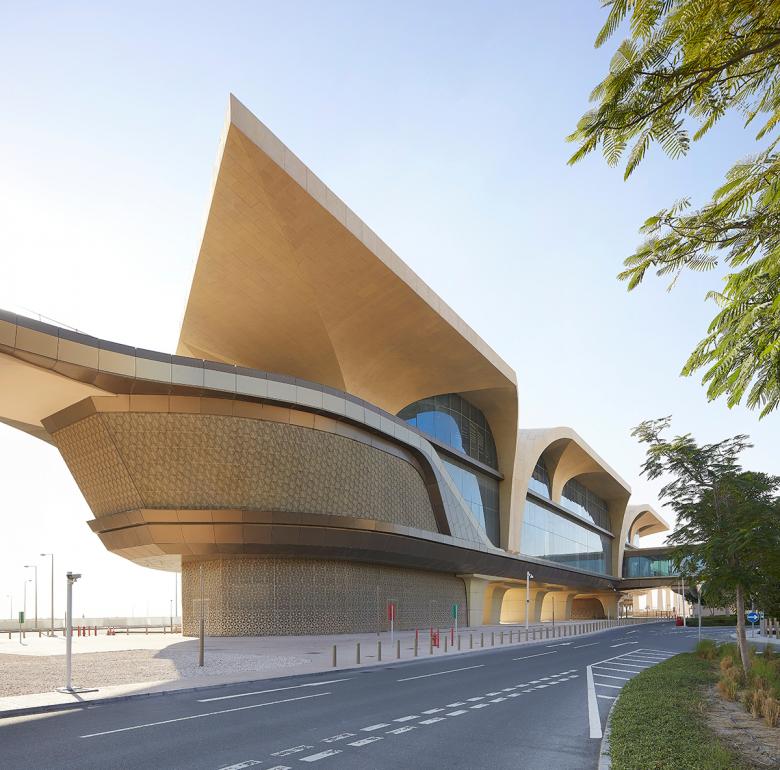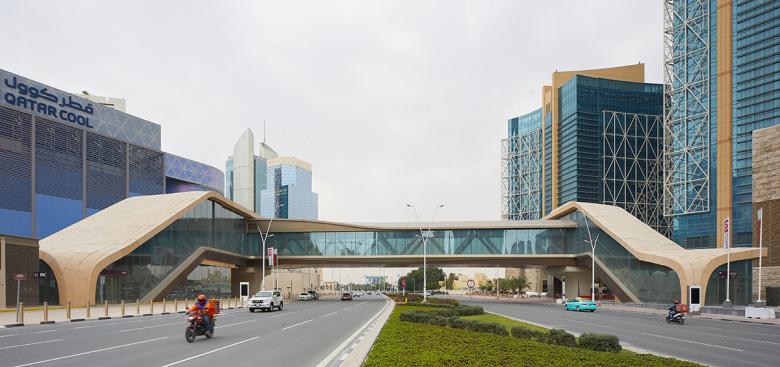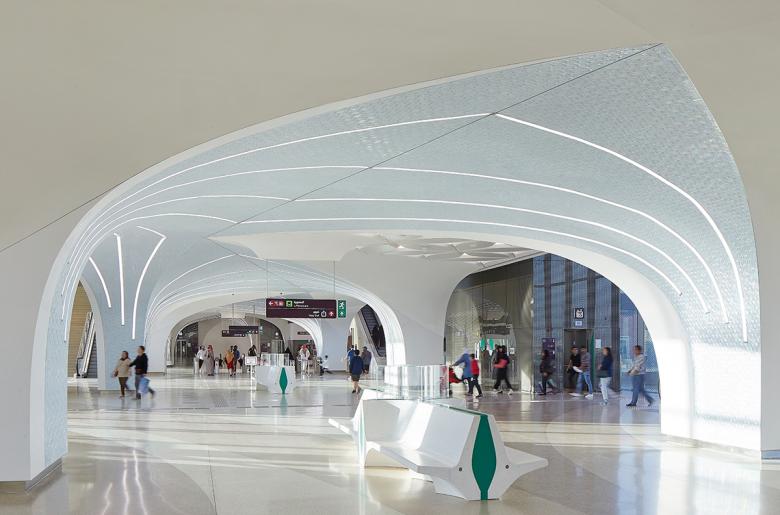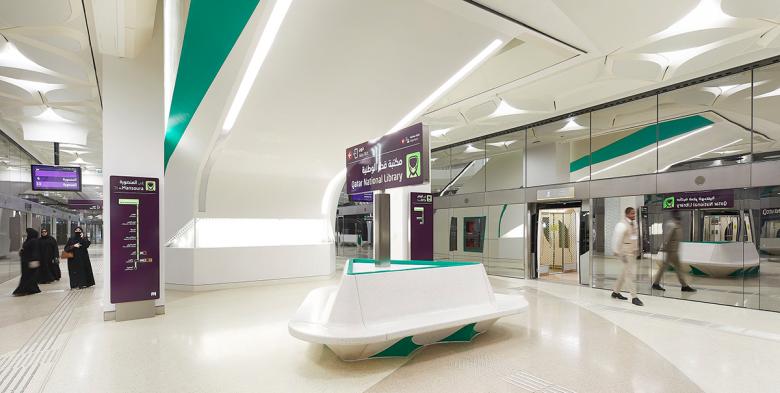UNStudio Completes First Phase of Doha Metro Network
The stations feature generous vaulted spaces inspired by regional architecture as part of the larger project's goal of encouraging people in the capital of Qatar to use public transit rather than relying on cars.
The first phase of the Doha Metro Network became operational in May 2019 and consists of 37 stations on three lines: Red, Green, and Gold. Fourteen stations on the Blue line will bring the number of stations to 51 by 2026. Doha's nearly one million people would primarily move about the city by car before the stations opened. Beyond actually providing public transport, though, the stations were designed to be identifiable markers in the urban landscape and pleasing spaces for people to move through. The sentiment is echoed by UNStudio's Ben van Berkel: "In order to encourage the use of more sustainable forms of transport, these stations not only have to ensure smooth passenger flows, but they need to truly appeal to the public; to be places they want to visit and return to."
Station identity logically happens on the outside, where undulating sandy-colored surfaces prevail, as in the Al Riffa Station (above) on the Green Line. Beyond the above-ground buildings for the individual stations, this identity extends to pedestrian bridges, like the one below, that allow for safe passage across the city's wide roads.
Inside, the vaulted spaces are covered in mother-of-pearl-like surfaces that create what the architects call a "radiant effect of movement and fluidity" while also bringing daylight deep into the stations. UNStudio developed an adaptive parametric system to ensure that the network's architectural branding, as well as the openness and welcoming of the vaulted interiors, was consistent across the different stations types and site conditions.
Visit UNStudio's profile to see more of Doha Metro Network.




